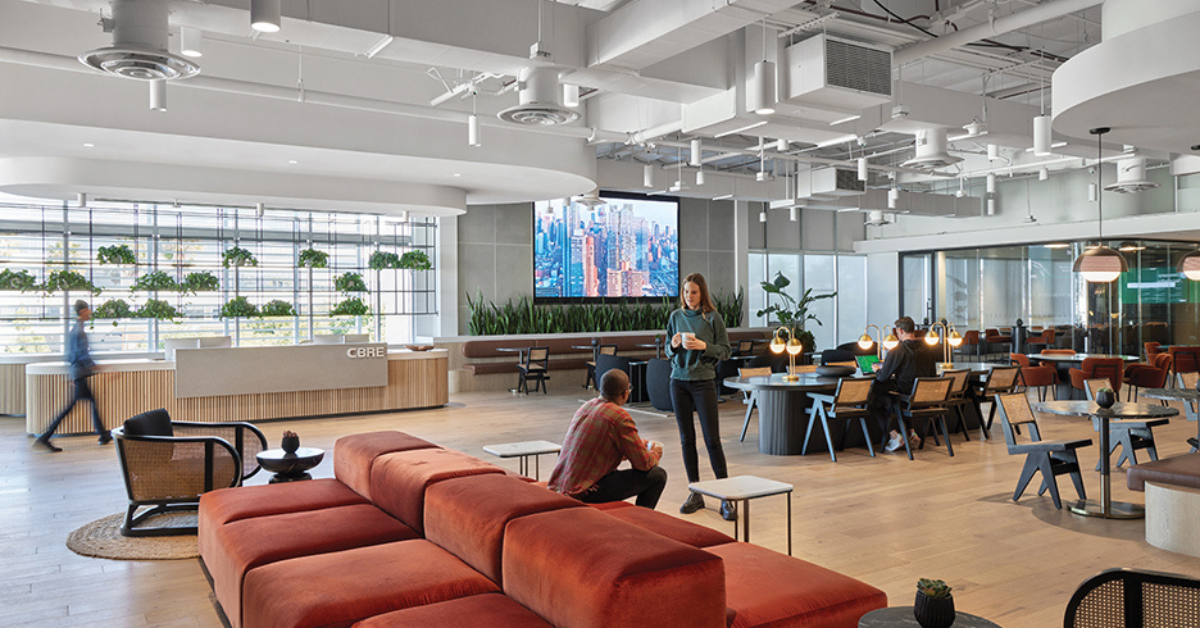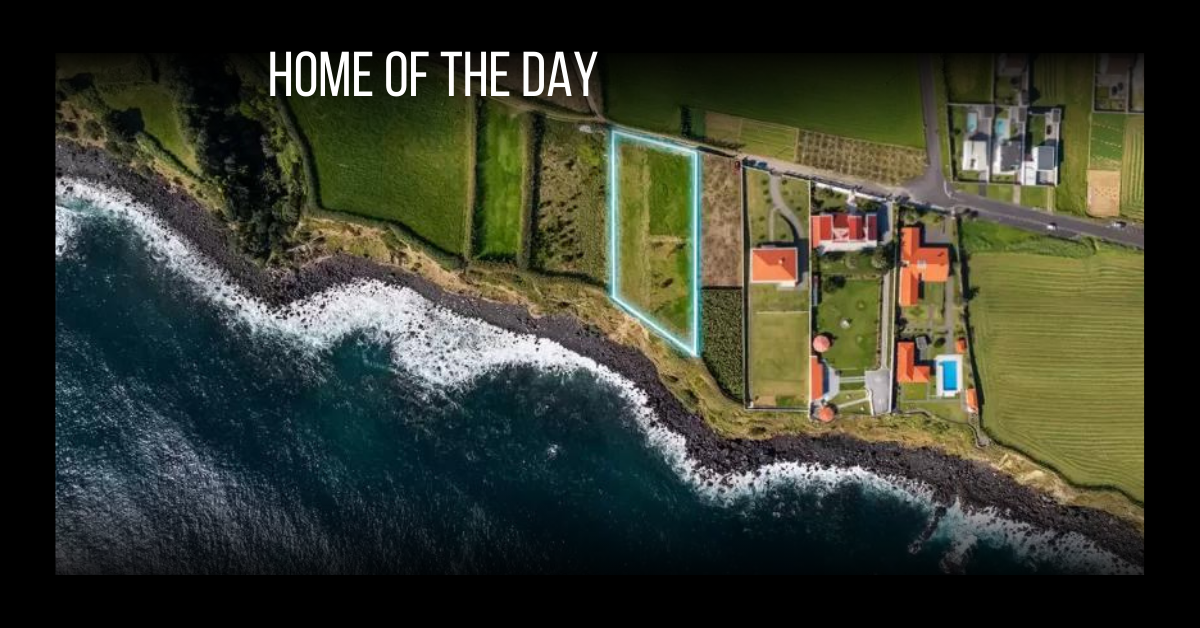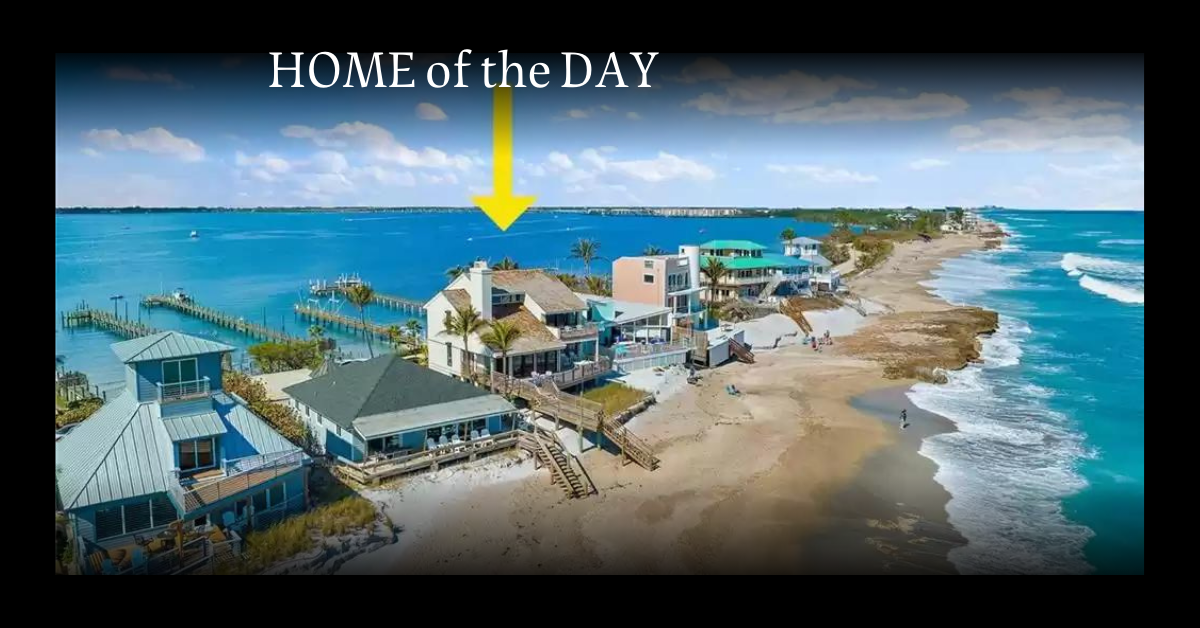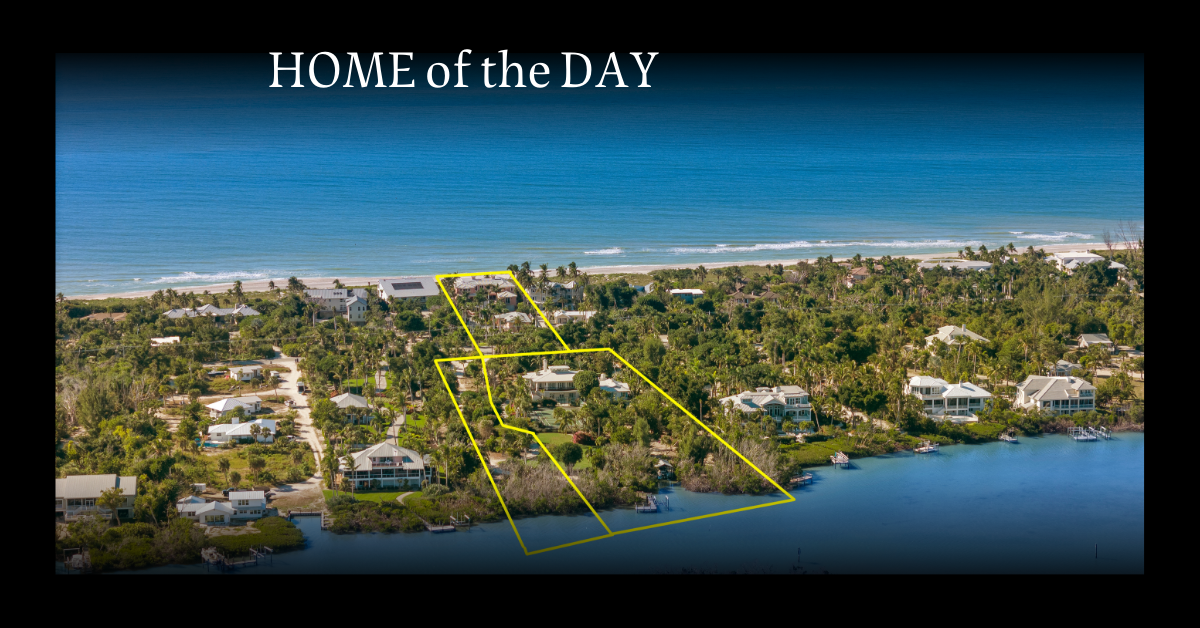
Over a decade in the furniture business led me to a simple conclusion: The furniture industry needed to be reinvented. It was dominated by legacy players who were doing the same things for generations, while the hospitality industry was changing dramatically. Hotels and other public spaces were turning into immersive experiences where design and style statements mattered more than ever. But when it came to furniture, the big players were unable to deliver the quality, speed, and responsiveness that this new world demanded within hospitality players’ budgets.
So, I created White Space to fill this void.
At the heart of our model is a new infrastructure that delivers a custom-built supply chain for every project. We work with — and manage — the factory best suited for the task, no matter where in the world it’s located. This is the big change the industry needed — the ability to manufacture the highest quality furniture, casework, lighting fixtures and flooring with scale, efficiency, and attention to detail.
To put it another way, my inspiration for starting White Space was identifying that there was a white space in my industry — a gap that we could successfully fill.
What is the big change you’re bringing to office spaces?
We’re eliminating the false choice that existed in the market: that you have to choose between quality and affordability, or creativity and efficiency. Buyers and purchasers of all kinds were resigned to picking out generic furniture from a catalogue, because that’s the way it had always been. Now no one has to make that choice.

It really started with the epiphany described above, and the realization that I had the experience to start a company like this. I knew the strengths and weaknesses of so many factories around the world — and I had cultivated the professional connections and knew the projects I brought them would get the focus and effort they deserved.
Those connections also mean that we can bring our own quality-control teams on site: they’re there at every stage of the production process to make sure we’re delivering exactly on our clients’ specs. Because of our ability to deliver the highest quality on time, within budget and at scale, we’ve been able to mature very quickly and work with some of the biggest names in the hospitality industry — from Disney to the Ritz-Carlton.
What are some of your favorite projects?
One of my favorite projects is the work we did for the Nakoma Lodge. I feel particularly proud of this — not only because it came out so well, but because it is an honor to be associated with a Frank Lloyd Wright design. That we were able to successfully and seamlessly extend his aesthetic speaks to the power of the system we’ve built, to fully realize even the most complicated and nuanced of visions.
Also, I feel very proud of the work we did with WeWork to open their Tel Aviv flagship. They are clearly changing the workplace and it’s a thrill to be part of that change. They also have high standards and a sophisticated vision for their brand, that’s always extended to the spaces they design, so it was extremely gratifying that they chose us. It’s also always fun to work on such a cool, trend-setting project.
How is White Space innovating office spaces today?
We’re helping to kill the cubicle — and more broadly, the fluorescent-lit, colorless, isolated environments that employees were almost universally forced to work in a few years ago. A lot of modern corporate offices are taking cues from the hospitality industry, surprisingly enough: the shared spaces that encourage socialization and collaboration are increasingly a focal point in corporate office design, as we come to realize that happy, healthy employees who actually like each other end up more productive. People do more when work when it doesn’t feel like work — and creating that vibe and work ethic starts with the physical environment. It’s the main reason people come to us to make their offices feel less like offices.
What are your future aspirations for White Space?
I aspire to continue to expand globally, both within the hospitality industry and within adjacent industries, including co-working spaces. We want to continue to work with creative brands who have expansive visions, and with designers that share these qualities. We’re here to support anyone who has an envelope they want to push.
The system we’ve created is agnostic to the project, and we want to work with people who’ve been boxed in by their previous vendors, that couldn’t deliver as fast and as fully as we can. We help those companies compete through innovative design. Design is a true competitive advantage today.
Photos courtesy of White Space
As we move further into the age of digital communication, more and more Americans are working remotely. Residents are beginning to find it important to live in a building with office space. Working from home has become very popular, especially during times of disaster — Hurricanes Irma and Jose forced millions to work remotely.
These residential developments have gone above and beyond to create professional environments within a residential space:
Commuting residents of Downtown Brooklyn’s 1 Flatbush will envy their neighbors who work from home, as the apartment building’s Hill West Architects and Whitehall Interiors-designed amenity spaces are ideal for Brooklynites who don’t have a traditional office. The building includes workspaces for every profession, from business executives who can concentrate in the industrial yet chic lounge, to chefs who can perfect their skills in the building’s demonstration kitchenette. To avoid cabin fever, 1 Flatbush’s game room and roof terrace offer a solution to those afternoon slumps.
courtesy of Whitehall Interiors
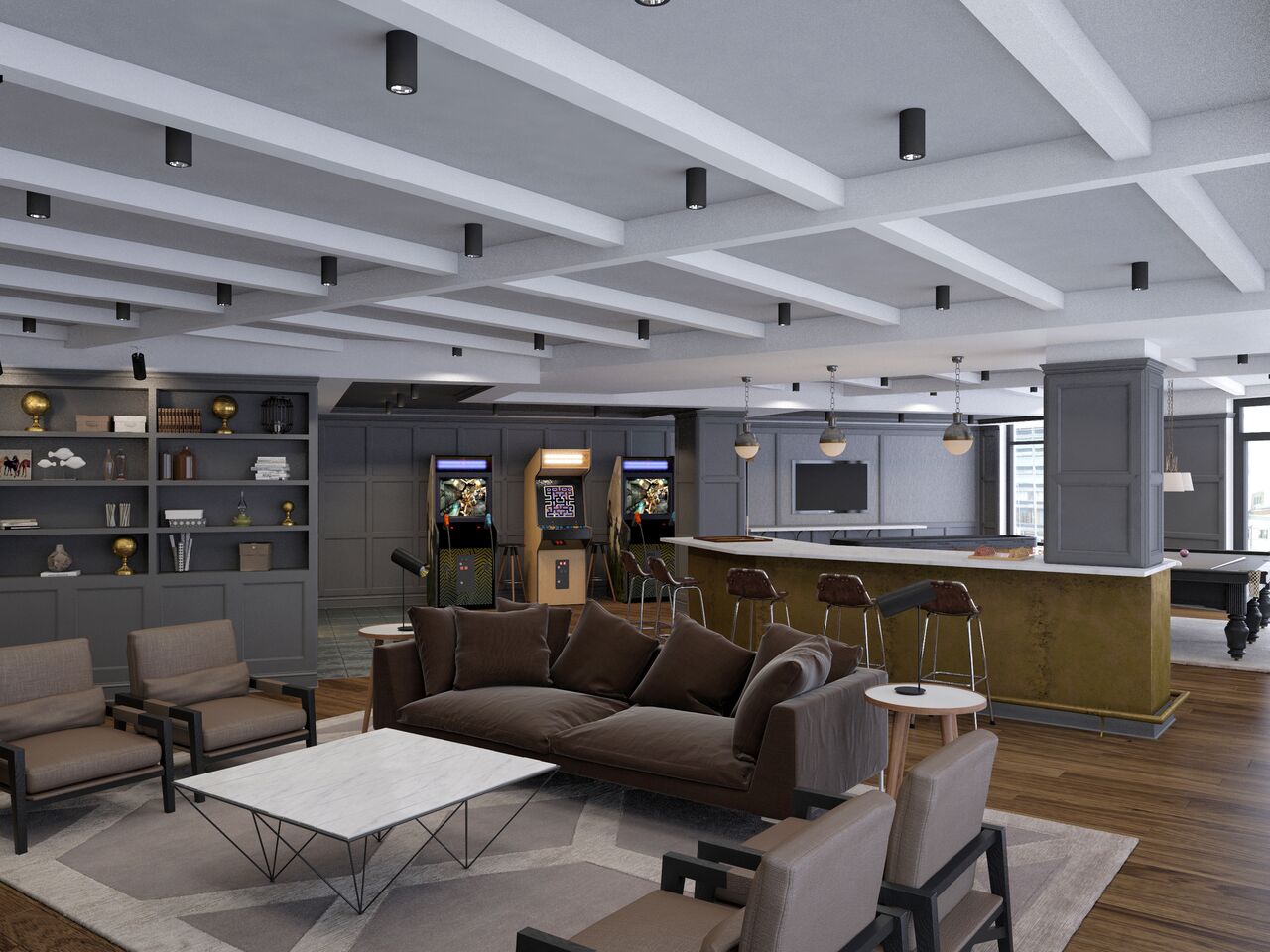
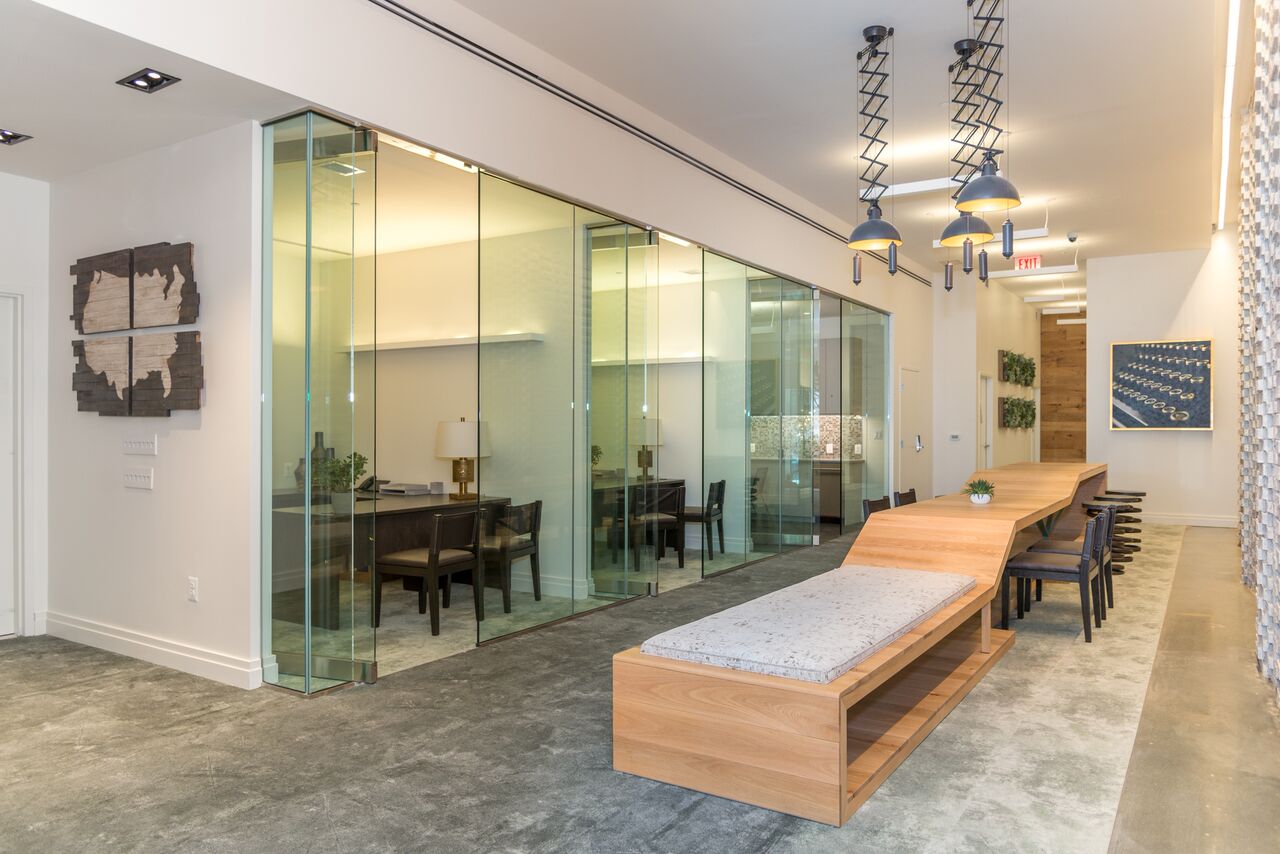
The Edison, the first luxe residential building to rise in D.C.’s Union Market District, was designed to accommodate the working professional. The property offers several common spaces for co-working and private break-out rooms for meetings. The building’s most prominent work-from-home feature is its privately managed fiber-optic internet network — a first for a multi-family building in the U.S. The network and built-in wireless access points in each residence will deliver immediate and uninterrupted high-speed connectivity that will be seamlessly integrated throughout the building and monitored 24/7.
courtesy of LCOR
At TF Cornerstone’s 33 Bond Street in Downtown Brooklyn, entrepreneurs can forgo the kitchen table for Homework, the collaborative co-working space designed exclusively for the building’s residents. Homework features two large conference rooms with television screens for conferencing and presentations, dedicated booths with bench seating, two long tables for laying out the latest business plan and a coffee bar for those long work nights.
courtesy of Robbie Noble
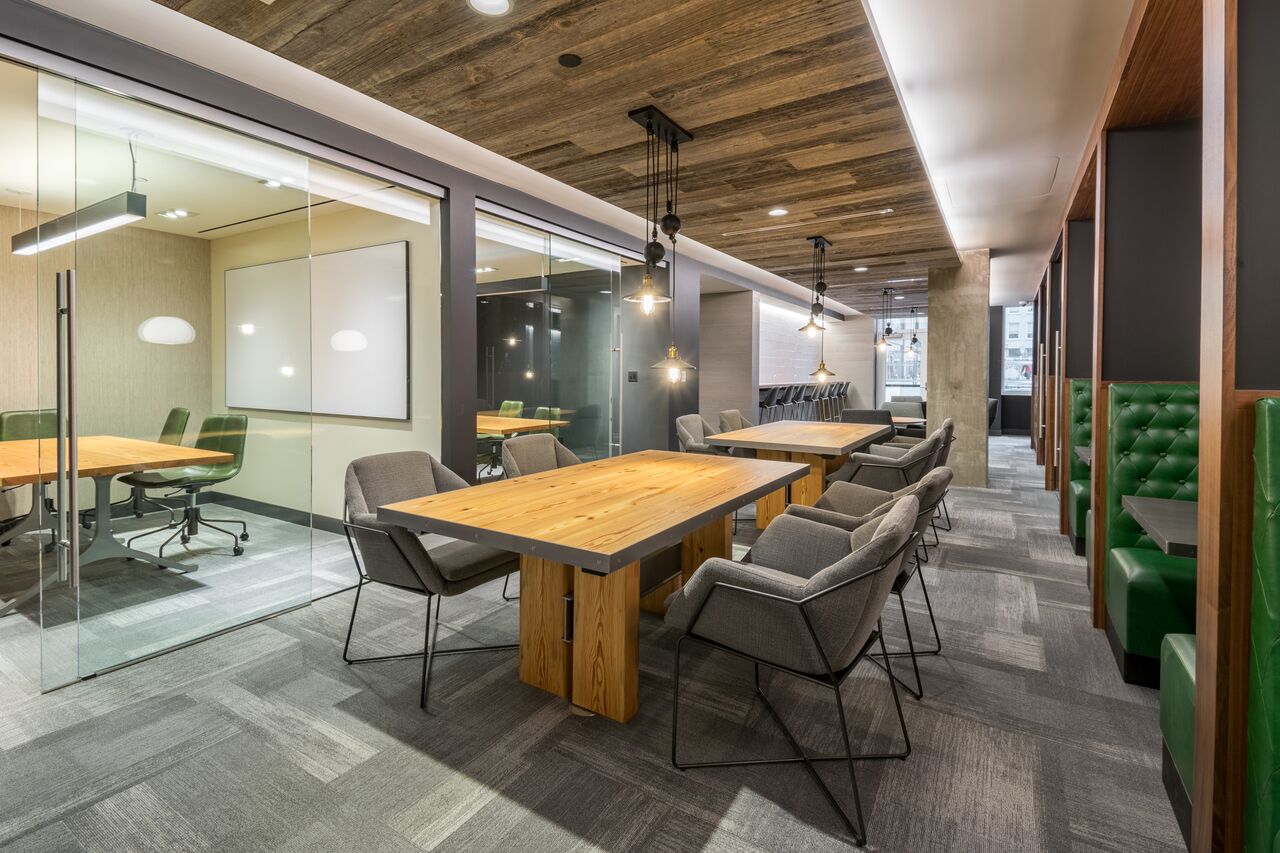
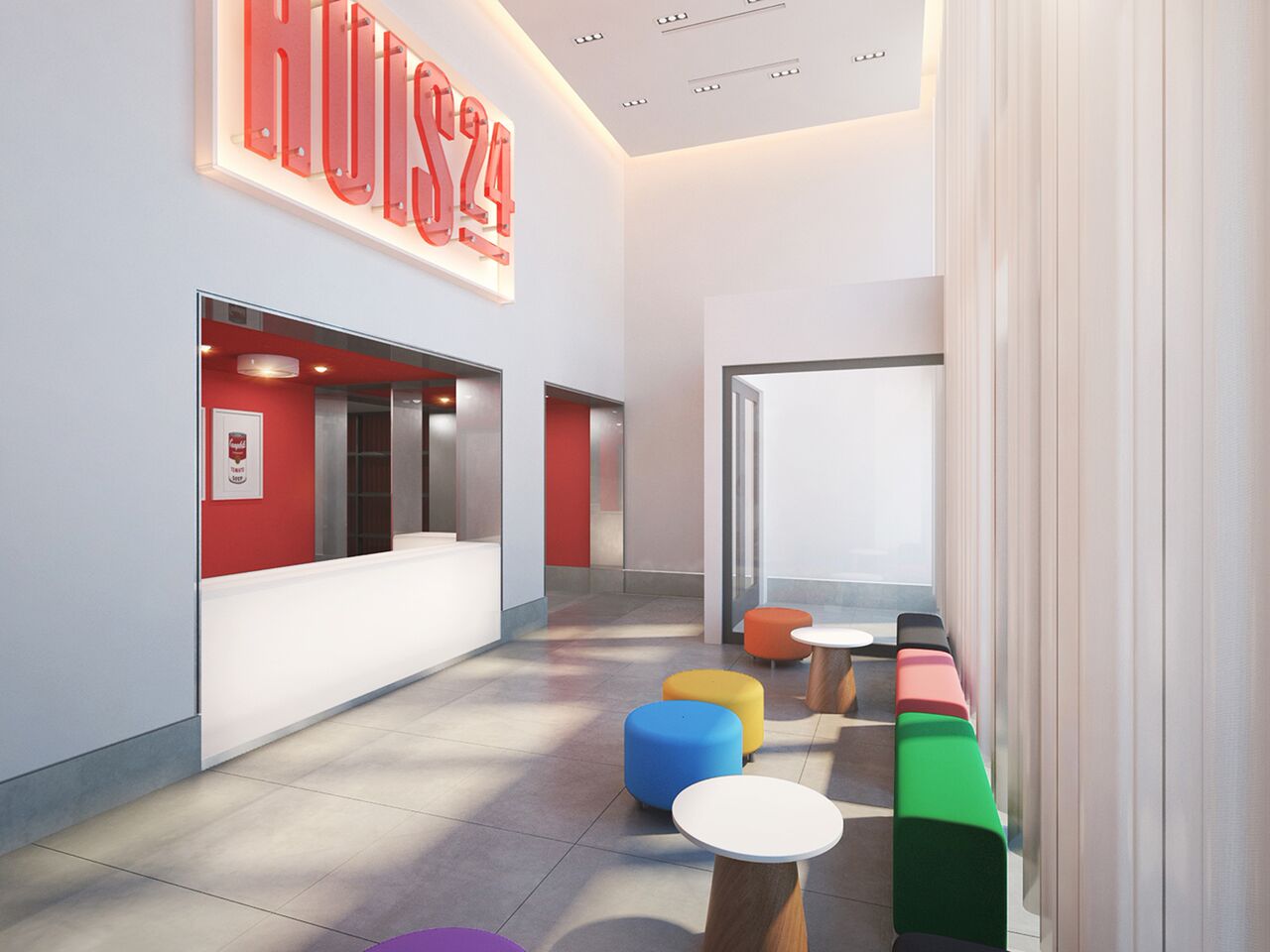
At Huis24, a new 91-unit rental building in Long Island City, residents can gather in a communal work space reminiscent of a start-up think tank where ideas flow. The space is equipped with Wi-Fi, USB outlets, segregated working stations and has speakers throughout to create an upbeat atmosphere. A breakout room has a conference table, a large screen with HDMI hookup for presentations or video conferencing and is complete with a chalkboard wall, perfect for inscribing ideas during brainstorming sessions.
courtesy of Modern Spaces
Moving from Amsterdam to the Mediterranean sea, the staff at Boatsters now works remotely on a superyacht.
By Alyssa Gautieri
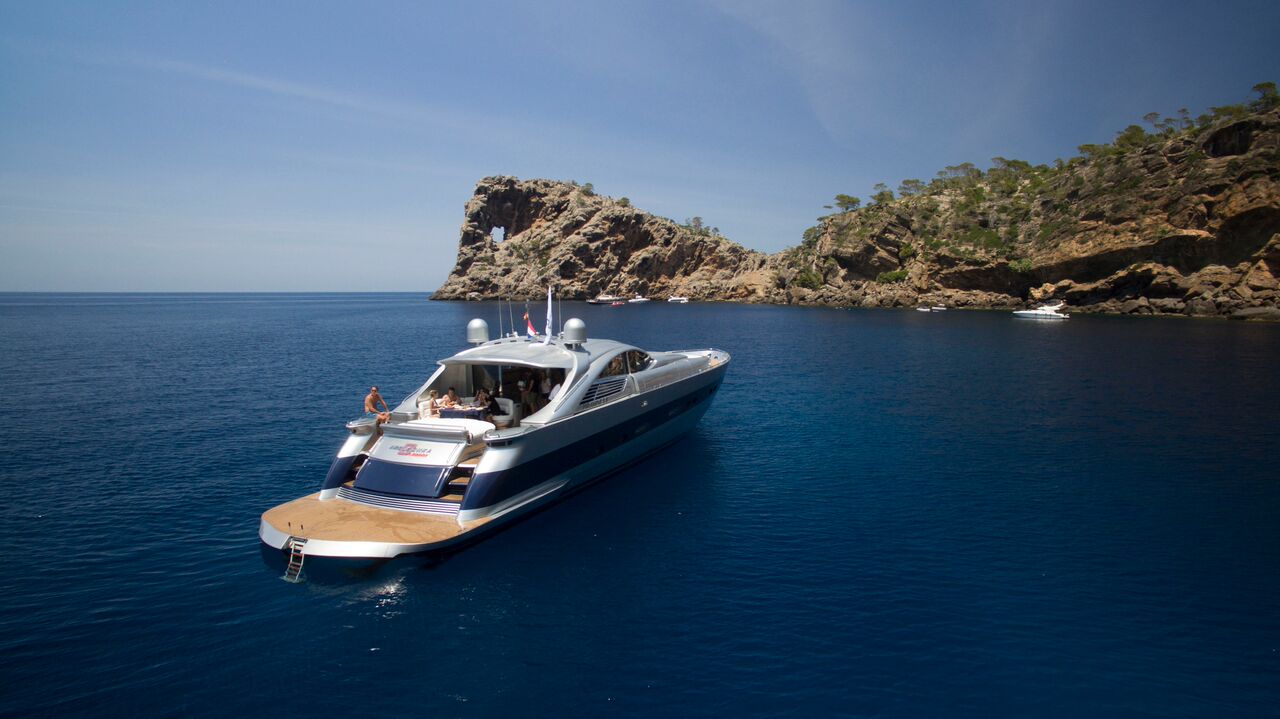
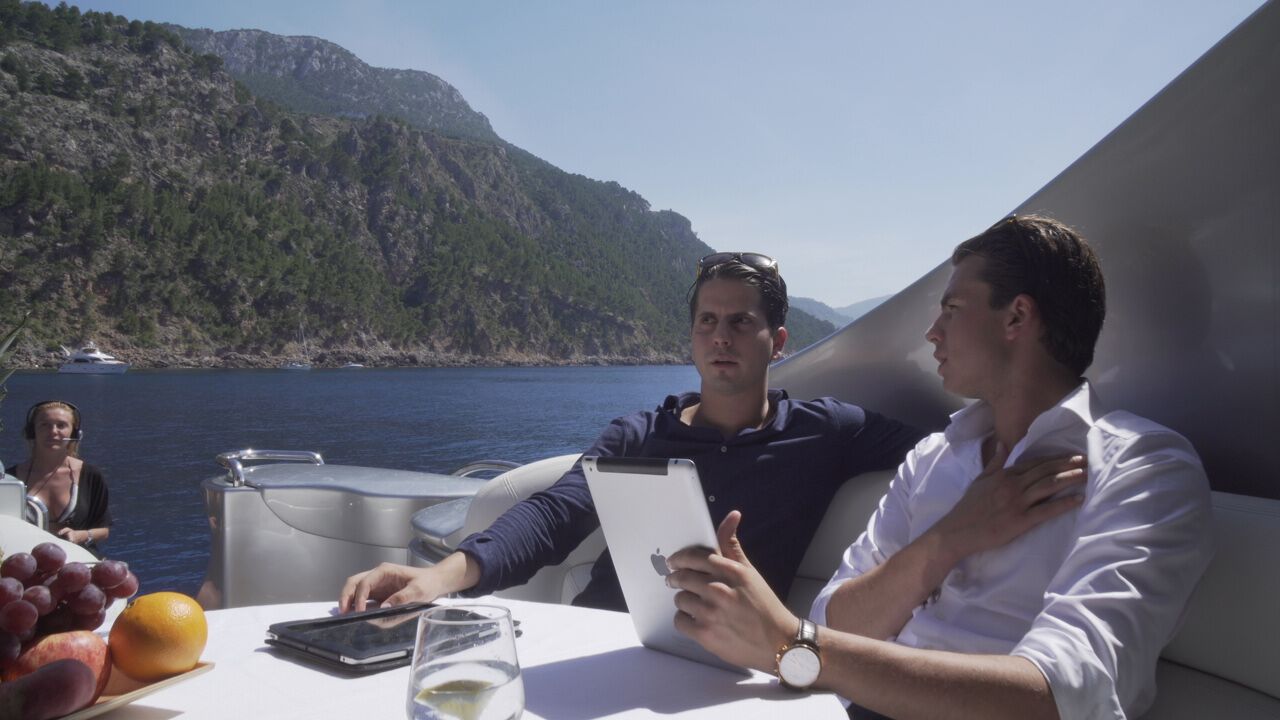
As the first startup company in the world to open an office on a yacht, Boatsters now works, meets with clients, and sleeps on the boat. Sailing from harbour to harbour on the Pershing 88, Boatsters, a global rental platform for yachts and boats, enjoys all the comforts their aqua office has to offer. Complete with two double rooms, two twin cabins, and office space, the Pershing 88 is the perfect aqua office.
“Being on a yacht is already a rare and unique experience,” says Raoul Milhado, the managing partner at Boatsters. “Every day you wake up, it feels like you are in paradise. Therefore it doesn’t feel like working anymore at all. We usually work every day, because we rent out boats while we are on a boat, so it’s a lot of fun.”
Boatsters rents the boat from one of its long-time clients, Roberto Vazquez. “Boatsters is not only a charter company, they have a new life concept which is about enjoy and improve your life,” Vazquez said. “When I met the young partners a while ago, I believed in them.”
Because Boatsters has partners, clients and events spread out along the coast of the Mediterranean Sea, the Pershing 88 is an ideal way of transportation. The yacht office is moored in Mallorca, cruising to all the major harbors such as Menorca, Ibiza, and Formentera, as well as all the coasts of the French and Italian Riviera. “It’s very special, more productive and a lot of fun,” Milhado says. “We go from place to place, while meeting interesting people, clients, partners, etc. You can’t imagine how cool it is!”


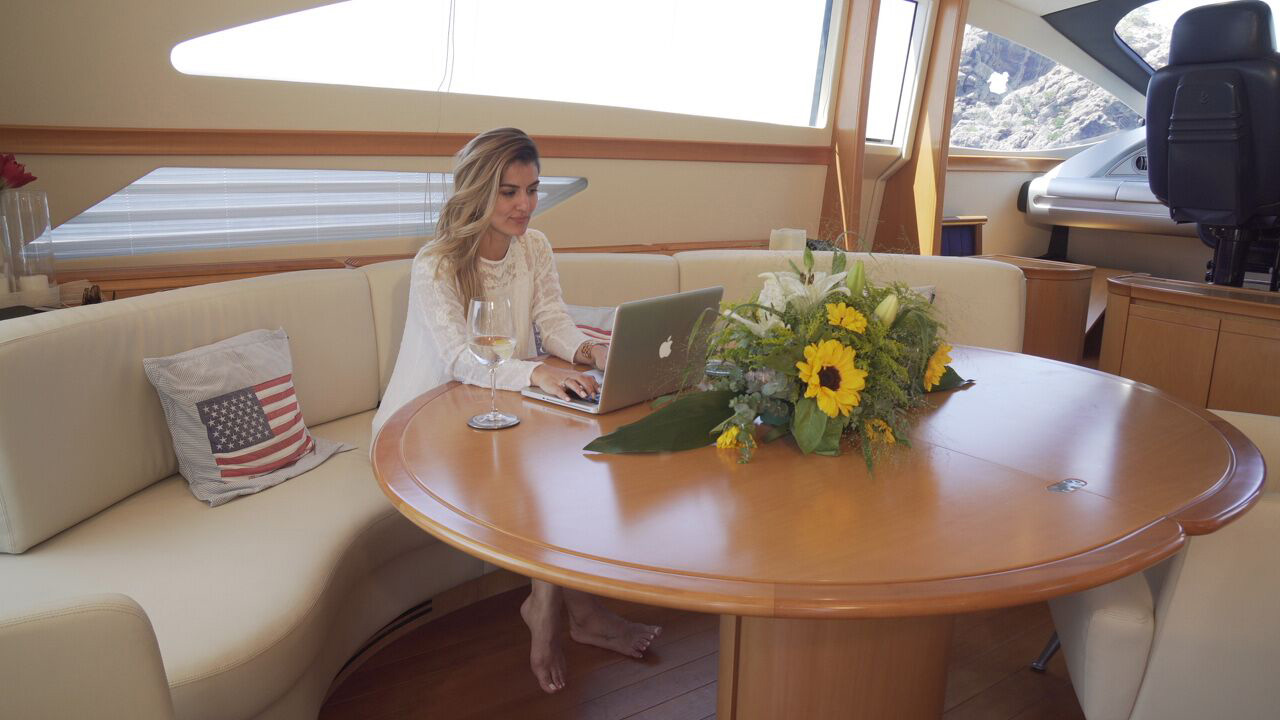
More and more companies are realizing that employees need freedom in order to maximize productivity and creativity. Is it possible that aqua offices might become a trend? Milhado believes that the concept may gain traction. “Due to rise of online companies, people don’t have to work in a regular office anymore,” he says. “They can work from everywhere.” While many companies may not have the luxury of working from a yacht, Milhado “really believes that working in a regular ‘cubicle’ office is changing fast.”
“Unique offices are popping up everywhere and nowadays it’s a trend to have a unique office with all sorts of amenities at hand for the employees,” Milhado adds. “These office vibes also creates an atmosphere that’s pretty unique for a startup. We’ve noticed a lot of people do want to work with us for that reason.”
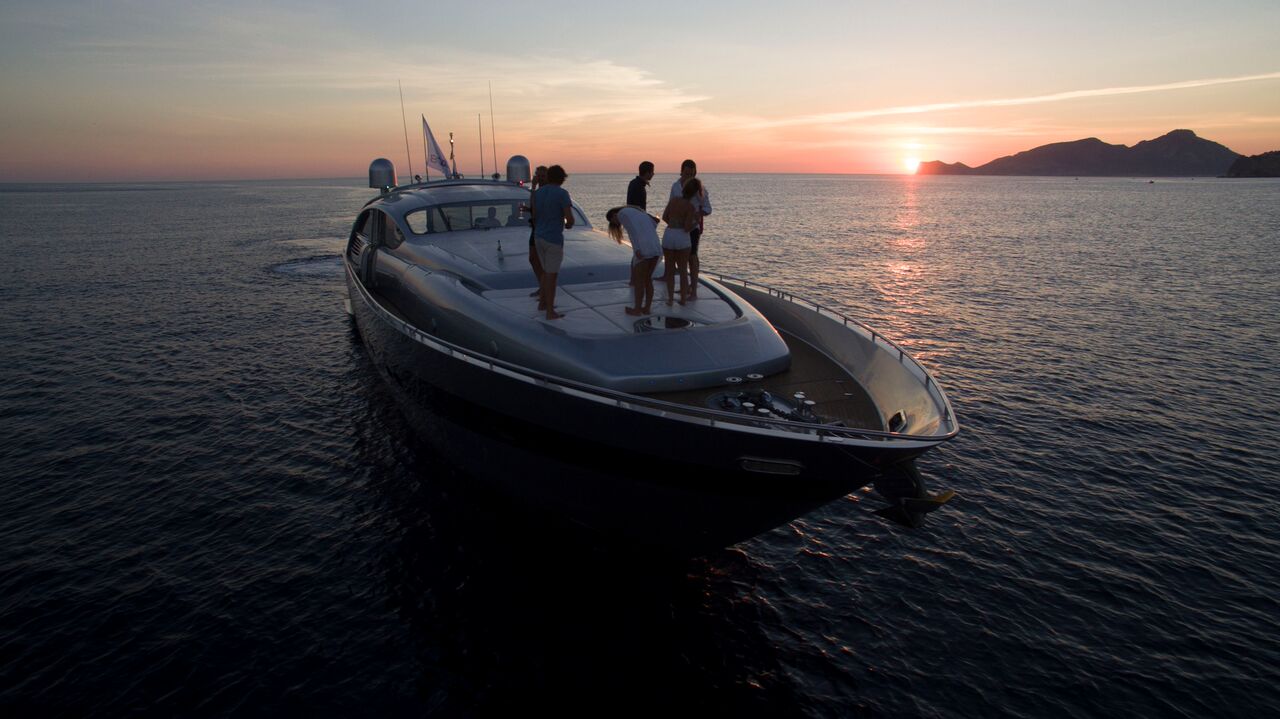
Boatsters, a world leading rental platform for yachts and boats, has a portfolio of over 10,000 rental boats spread across 63 countries. Boatsters, while simultaneously changing the maritime industry, is innovating what it means to “go to the office.”
Photos courtesy of Boatsters




